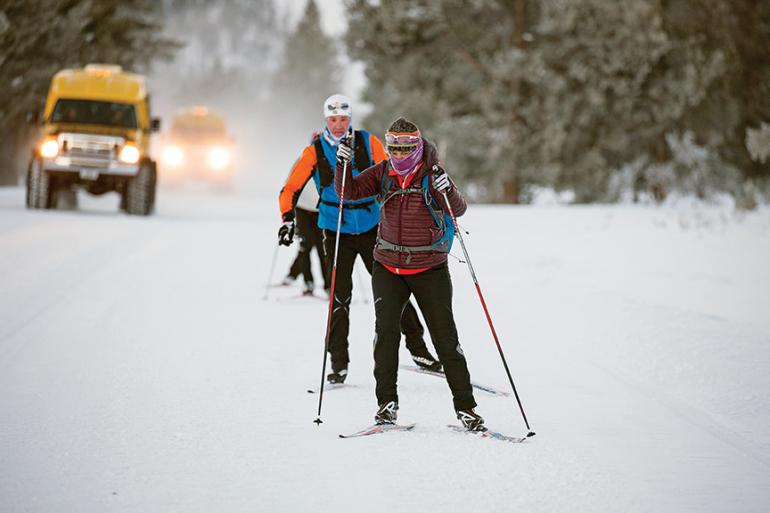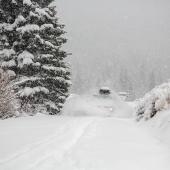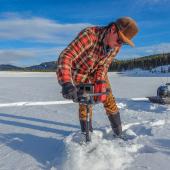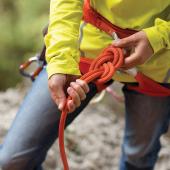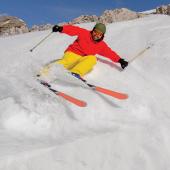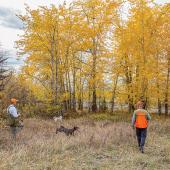Barometer Beaters
Five tips for staying warm.
In these parts, it takes negative temps to qualify as extreme weather. At least a few times each winter, the mercury falls and doesn’t go back up for days at a time. When that happens, a trip to the grocery store can require more layers than your typical day at Bridger. If you’re brave enough to stay out in the elements, here are some tips for staying safe and warm—relatively so, anyway.
Fuel Up
When the temps plunge, adequate food and fluids can be just as crucial as wearing adequate clothing. Pack foods that are high in carbohydrates like crackers, dried fruit, and candy. These carbs provide the most immediate source of usable energy, and are invaluable when you are traveling in the cold. Often when you’re exposed to extremely low temperatures, you won’t feel thirst as strongly or as immediately as you would in a temperate environment. This doesn’t mean you shouldn’t stay hydrated.
Beware of Booze
When the windchill outside is sending temperatures into the negatives, the last thing you want to do is drink alcohol, causing your body to lose heat at a significantly increased rate. This heat loss is especially dangerous because it’s difficult to judge; alcohol consumption will make it harder to recognize when you are getting colder, creating the illusion that you have improved your condition when, in fact, the opposite is true. Stick to beverages such as herbal teas, which will warm you up but don’t contain chemicals that can quickly put you in a dangerous situation.
Layering is Key
Any time you’re being active outdoors, it pays to layer. The same is true when the temps are in the negatives; you might not think your body could warm up enough to sweat, but skiing can be a high-output activity, and getting sweaty in extreme low temps can be a death sentence.
Loosen Up
It may be tempting to wear tight clothing to create the illusion of being better outfitted for the weather, but it is crucial that you select looser alternatives. Tight clothing reduces circulation of warm blood to your extremities, and this decreased blood flow will cause you to become colder at an alarming rate when you’re exposed to the elements. Wearing looser clothing won’t make you colder—in fact, it will allow warm blood to circulate quicker and more thoroughly through your body, and better insulate the heat that this process generates.
Stay Positive
The first four tips on the list are decidedly physical, but it’s extremely important not to count out the impact of maintaining a positive mentality. Remaining upbeat and confident (while not overconfident) in extremely cold weather will distract you from the negative aspects of exposure, providing you with that extra burst of strength to keep moving and generating insulating heat.
Adrian Ballinger is a mountaineer, business leader, and professional speaker. He is the founder and head guide of Alpenglow Expeditions.

